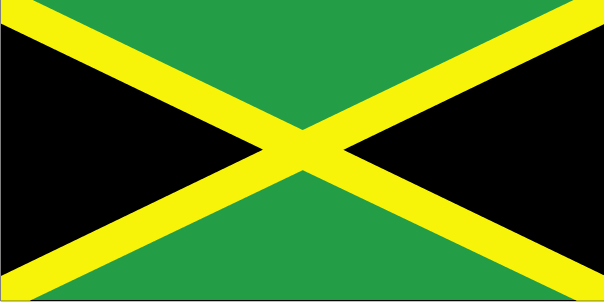Login form
Customs of Jamaica
 Marriage and Family
Marriage and Family
Jamaican families in lower socioeconomic groups are usually larger than those in the middle or upper classes. Many Jamaicans believe that men need to prove their virility by fathering a child and women their fertility by giving birth. Women assume the primary responsibility for child care, but children often live with grandparents, other relatives, or godparents when the mother works outside the home. Most families live in houses or townhouses rather than apartments. Homes are generally built of concrete or, in rural areas, wood.
Eating
Jamaican food is generally very spicy. Rice, vegetables (such as beans, peas, yams, tomatoes, and green peppers), fruits (such as mangoes, bananas, papayas, pineapples, oranges, and grapefruits), stews, and various types of fish figure largely in the diet. Fish may be eaten several times a week, and ackee and salt fish, the national dish, is often eaten for breakfast. Most meals are served with rice and 'peas' (red beans) and may also include boiled green bananas or fried dumplings. A typical salad includes cabbage and carrots. Popular dishes include curries such as curried goat; and jerk, a spicy-hot piece of barbecued pork or chicken, roasted in an open pit or on a makeshift grill, and often served with a bland, hard-dough bread. Bammy (cassava bread) is a standard food; it is still prepared in the style of the Arawak. Bammy with fried fish is a frequent combination, as is festival (fried dough) with fish. Indian and Chinese dishes are widely enjoyed, and restaurants serve a wide variety of cuisine.
Drinks made from boiled roots, herbal teas, fruit juices, and a variety of alcoholic beverages are common, as are coffee and tea. It is customary for all hot drinks (coffee, cocoa, green tea, etc.) to be called 'tea.' Beer and rum are among the most popular alcoholic drinks. Women do not usually drink alcohol in public.
In rural areas families tend to eat dinner together each day after 4 pm, while families in urban areas might not have a chance to eat together except on weekends. A prayer is often said before and after meals. Although table etiquette is considered important in some families, meals are usually casual and table manners are considered less important than enjoying the food and the company.
Eating outdoors is popular, especially in gardens and on patios. Restaurants range from informal cafés that serve simple Jamaican dishes to sophisticated establishments. “Take-away” foods are sold both by shops and street vendors. Pineapples, melons, and water coconuts are often sold from roadside stalls or carts as quick snacks or thirst quenchers. However, it is generally considered inappropriate to eat while walking in public.
Socializing
Depending on the person or the occasion, a greeting in
Greetings among friends are casual. A common phrase is Wha-apun? ('What's happening?') or 'All right, all right' (as if to bypass asking and responding to 'How are you?'). Jamaicans sometimes emphasize greetings by holding onto an initial handshake for a while, or touching the person's arm or shoulder during the greeting or later in the conversation. Common ways of saying good-bye include Later, Tomorrow, and Next time.
When addressing others in formal situations, titles and surnames are used, but in casual situations it is common to use nicknames, especially among men. Nicknames (also called 'pet' or 'yard' names) usually reflect a physical trait or a person's station in life; for example, a juice seller may be called Juicy. Jamaicans also shorten their names ('Nicky' for Nicholas, for example) or alter their given names to create a nickname by which they like to be called.
Families and friends find time to get together often to enjoy good conversation and a good laugh. Visits are often unannounced and almost always welcomed, although urban visitors may keep the visit brief if they have not called ahead. On an informal visit, Jamaicans usually wait at the house gate until invited in. Conversations held on the street are referred to as 'meet-and-greet' activities. Guests often bring a gift of fresh produce, flowers, or a bottle of wine. Buffet-style meals are popular when entertaining guests, who may be invited for any meal, including breakfast or brunch.
Recreation
Cricket and football (soccer) are the most popular sports in
Holidays and Celebrations
Official Jamaican holidays include New Year's Day (1 January), Ash Wednesday, Easter (Friday through Monday), Labour Day (23 May, a day for community improvement projects), Independence Day (the first Monday in August), National Heroes Day (the third Monday in October), Christmas Day (25 December), and Boxing Day (26 December). Boxing Day comes from a British tradition of giving small boxed gifts to service employees. While the term was borrowed from the British, Jamaicans have traditionally used the day to visit family and friends.
On Independence Day, festivities include traditional music and dancing, and agricultural, arts, and crafts exhibits. The Maroons celebrate 6 January as their Independence Day.
A very important holiday for Rastafarians is the anniversary of the coronation of Haile Selassie, a former emperor of
Source: Encarta Interactive World Atlas

